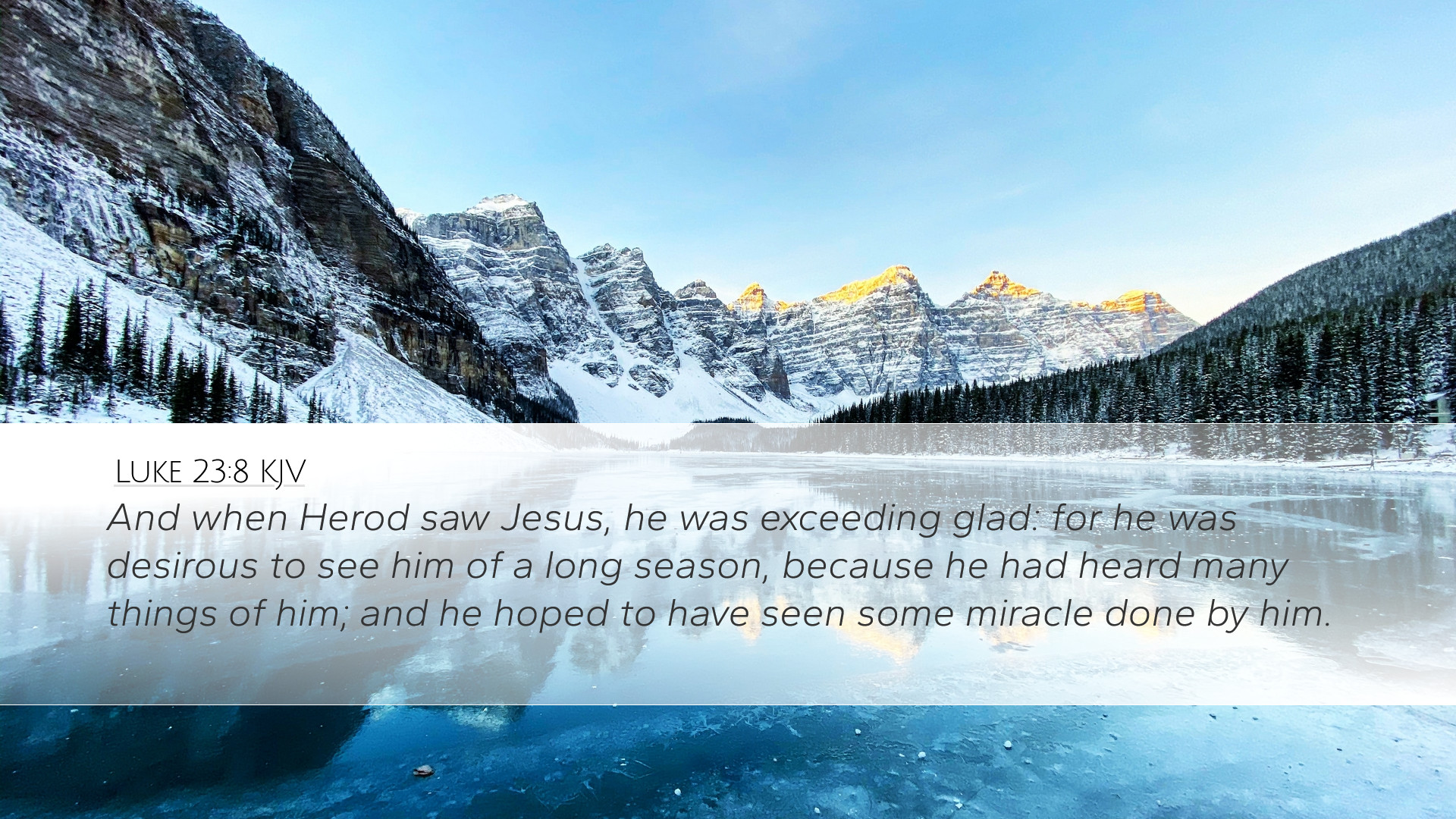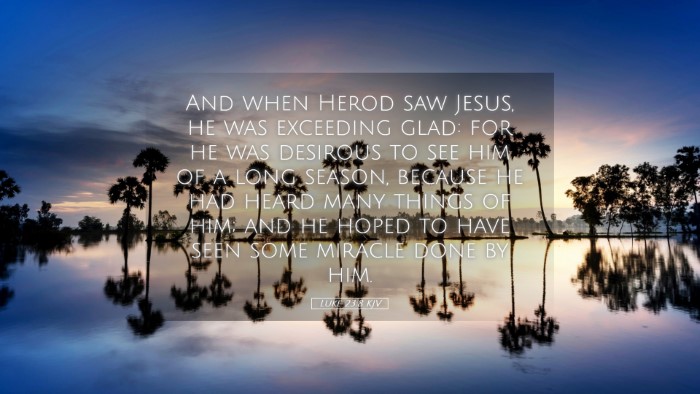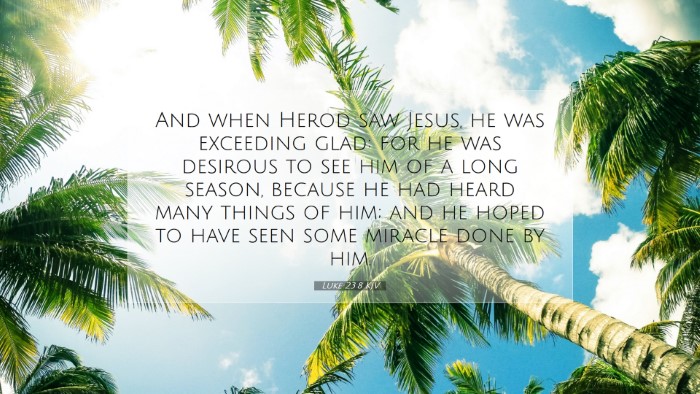Commentary on Luke 23:8
Verse: "And when Herod saw Jesus, he was exceedingly glad: for he was desirous to see him of a long season, because he had heard many things of him; and he hoped to have seen some miracle done by him."
Introduction
This verse presents a critical moment in the trial of Jesus, showcasing the interaction between Him and Herod Antipas. This encounter offers significant theological insights and highlights the nature of Jesus' ministry, the character of Herod, and the culpability of those who interact with the divine. The verse serves as a focal point for understanding the larger narrative of Jesus' passion and the various responses to His identity and mission.
Contextual and Thematic Analysis
As we explore this interaction, it is essential to consider the historical and political context. Herod was a tetrarch of Galilee and had previously executed John the Baptist. Jesus’ popularity had reached Herod's court through rumors of miraculous deeds. This interplay between power and divinity is rich with implications for understanding the nature of belief and skepticism.
Insights from Public Domain Commentaries
Matthew Henry's Commentary
Matthew Henry emphasizes Herod's eagerness to see Jesus, which reveals a superficial curiosity rather than genuine faith. Henry remarks, "Herod was glad to see Jesus, not out of love to Him, but to gratify his own curiosity." This distinction highlights a critical theme in the Gospels: the difference between mere interest in Jesus and true discipleship. Henry further reflects on how Herod hoped to witness a miracle, illustrating a transactional view of faith that seeks spectacle over sincerity.
Albert Barnes' Notes on the New Testament
Albert Barnes expounds on the phrase "exceedingly glad," interpreting it as a momentary excitement without depth. He notes, "Herod’s joy was no better than that of a jesting spectator." Barnes illustrates Herod's duality—his role as a ruler grappling with divine authority while simultaneously embodying skepticism. This portrayal of Herod reinforces the chasm between earthly power and heavenly authority, serving as a reminder that earthly rulers can be fickle and self-serving.
Adam Clarke's Commentary
Adam Clarke brings attention to the term "desirous to see him of a long season," linking Herod's long-standing interest to cultural expectations of the Messiah. Clarke argues, "Herod's desire was merely sensational; he wished to witness a marvel." He posits that this encounter disappointed Herod, as it did not align with his expectations of seeing a powerful miracle. Clarke’s observations challenge readers to reflect on their motivations for seeking Jesus—are they in search of genuine understanding, or merely seeking entertainment?
Theological Implications
1. Curiosity vs. Faith: The interaction sets a contrast between curiosity and genuine faith. It is essential for believers to examine their motives when approaching Christ; genuine faith demands more than mere interest.
2. Authority of Christ: Herod’s encounter reflects the tension between secular authority and the divine mission of Jesus. Just as Herod sought to comprehend Jesus through signs and wonders, many today grapple with faith in contexts that often prioritize empirical evidence over spiritual understanding.
3. Human Expectation: Herod's expectation of miracles serves as a mirror for contemporary believers. Many seek God through a lens of expectations shaped by culture and personal desires rather than the truth of Scripture. This verse invites us to consider how our expectations of God can limit our understanding of His nature and purposes.
Conclusion
Luke 23:8 encapsulates a profound moment of reckoning between earthly power and divine purpose. Through the eyes of public domain commentators, we gain insights into the complexities underlying Herod's character and the implications of his encounter with Jesus. For pastors, students, and theologians alike, this passage challenges us to examine our own responses to Christ and inspires us to pursue a faith that transcends curiosity, moving towards an authentic relationship with Him.


